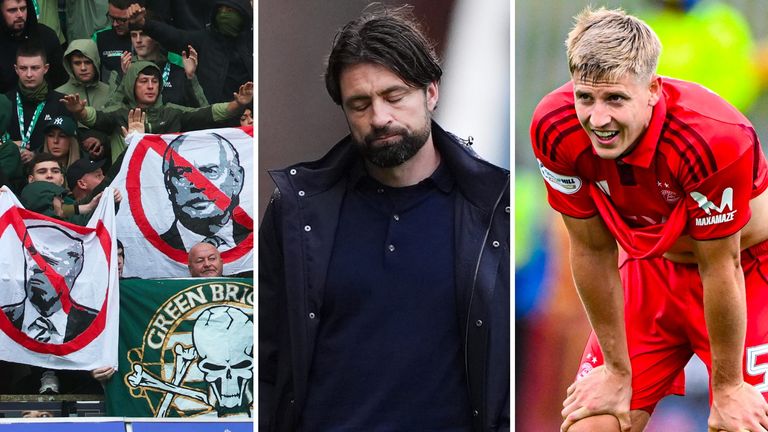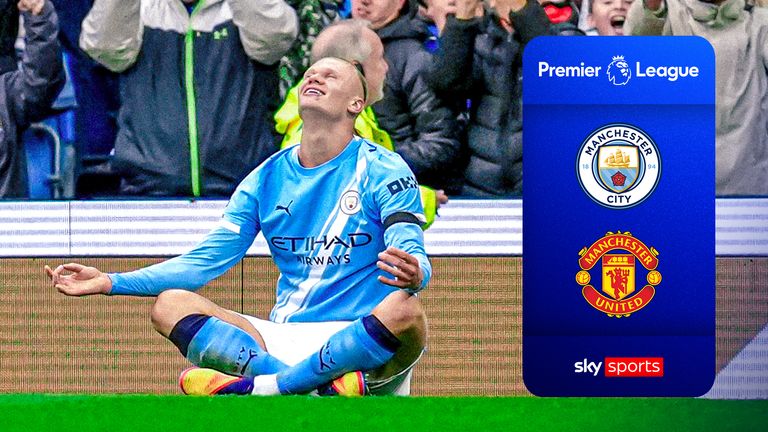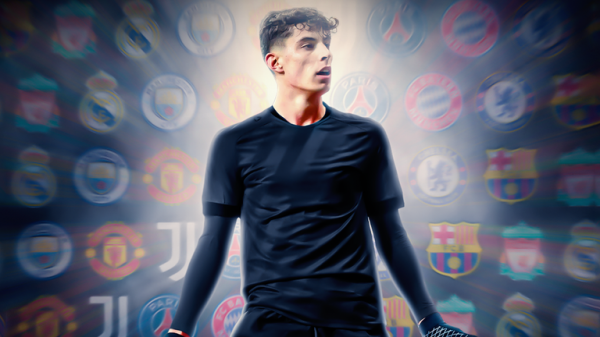
0:44
Take a look at Havertz’s stats from last season at Bayer Leverkusen
Picture the scene in May 2017. There are three games of the Bundesliga season remaining. Bayer Leverkusen head coach Tayfun Korkut has taken his struggling squad on a near-600-kilometre road trip to Munich to prepare for their game against nearby Ingolstadt later that week.
It made sense to leave early. Change the environment. Pressure was building at home after a 4-1 loss to Schalke. Defeat to Ingolstadt would leave a team that had been competing in the knockout stages of the Champions League just six weeks earlier now facing the risk of relegation.
- Get Sky Sports – All channels £23 a month
- Premier League ins and outs
Kai Havertz did not fly to Madrid for the game against Atletico that ended Leverkusen’s European adventure. The 17-year-old midfielder had an exam. Those same school commitments saw him skip the Schalke game too. But with his final test now out of the way he was free to link up with his team-mates in Munich, joining them just in time to make the final training session before this key game.
Korkut had only been appointed on a short-term contract that March. A 6-2 defeat to Borussia Dortmund had ended Roger Schmidt’s reign. His remit now was to steady this ship not blood youth. But as he watched on during that session something shifted in his mind. Someone made it shift.
“Sometimes that last training session is nothing,” Korkut tells Sky Sports.
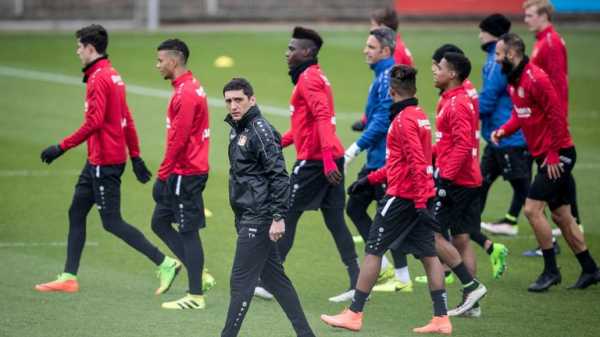
“You just do a bit of a warm-up, a small game for a few minutes and a couple of sprints. But when we played the small game on this small pitch, he was fantastic. It was like he was free after finishing his exams. Everything in his mind was clear because school was finished and even within 10 minutes of watching him you could feel it. It was just the way that he touched the ball.
“I decided to play him.”
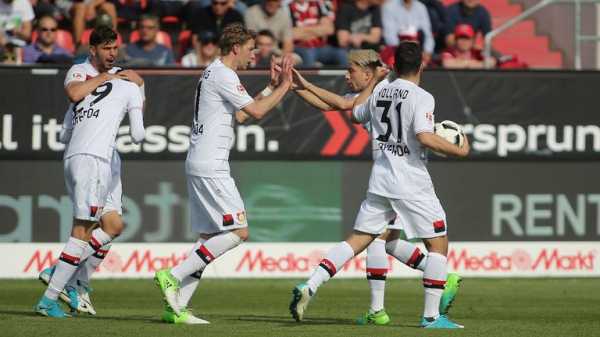
When Ingolstadt took the lead in the 73rd minute of the match, Korkut’s perceived gamble was beginning to look like an unnecessary one. But then Havertz popped up with the equaliser soon after, heading home from close range, and the crisis was averted. Leverkusen were safe.
“I had left out Karim Bellarabi. I had preferred Kai to the other big names. In the most difficult time, I trusted a young player. But that was not down to me. It was clear. It was obvious that he was going to be a big player and he had to play. All because he gave me that feeling just one day before.”
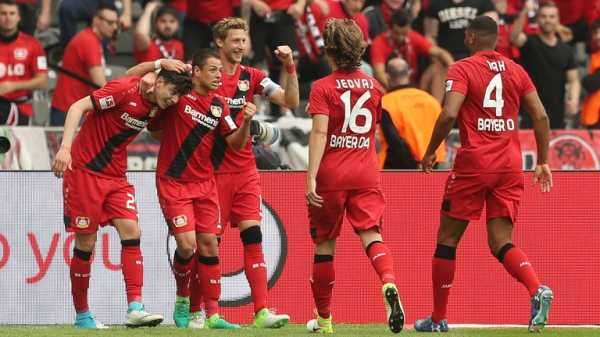
Havertz has been giving everyone in football that feeling ever since. He scored twice in Korkut’s final game in charge – a 6-2 win at Hertha Berlin – and in the past two seasons alone has added 38 goals from midfield.
He made the Bundesliga team of the year in 2019 having earned his first senior cap earlier that season and is now seen as the outstanding young German footballer. Can he improve? At 21, most feel he is already complete.
Korkut is among them. A tough-tackling Turkey international midfielder in his day, he has experienced enough in this game not to become giddy when discussing young players. But more than once during our lengthy conversation he checks himself momentarily, apologising because yet another unique quality has occurred to him. He appears almost embarrassed to be so effusive in his praise of Havertz.
The weight of pass, he compares to Andres Iniesta. The self-motivation reminds him of Raul, a former opponent of Korkut’s in La Liga. The ability to handle pressure is impressive even to a man who played much of his career in front of the baying crowds of Fenerbahce. He feels that connection and not just because Havertz’s first goal was scored on his birthday.
“When I left the club,” says Korkut, “I remember telling Rudi Voller, Leverkusen’s sporting director, to take care of Kai because he would be one of the best players in the world. He was 17 at the time but that is what I said. I have seen a lot of players with talent, but he is very, very special.”
Personality
The son of a policeman and a lawyer, raised in the village of Mariadorf, Havertz does not have a rags-to-riches backstory. Football was no escape for him. But perhaps that is the secret of his success.
“This is not a player who is playing for the money,” explains Korkut. “As a coach, you find out quite quickly what motivates people. There are all sorts of different people in this world. With Kai, it is just playing the game and having fun. He enjoys it. It is not about getting a bigger contract.
“I think to be a big player you have to love the game. I think Kai is one of those. He is intelligent, a nice boy from a good family, not some crazy kid. He is very settled. I do not think he will be thinking about having another million or whatever. He just likes the game and wants to play.”
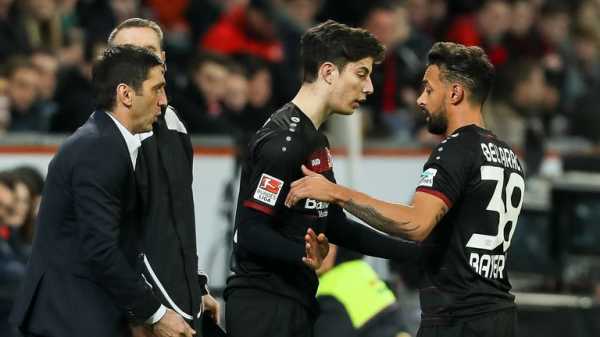
But what makes Havertz so good? It is a simple question that requires an in-depth answer that can feel part scouting report and part love letter because Havertz is such an all-rounder. He can do it all.
Position
The advantage of being an alleskönner – a player who can do everything – is that Havertz can be deployed in a number of different positions, giving his coach great flexibility. Korkut used a 4-2-2-2 formation that allowed Havertz “freedom to move around” rather than acting as a genuine winger.
“I played him on the right side because he was very young and I wanted to take him away from the pressure of the middle but he is not really a winger. I got the width from the full-backs so he could still come in from the wing and shoot or cross with his left foot. That was the idea.”
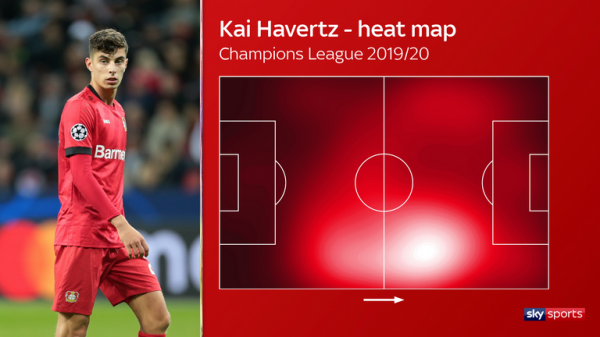
More recently, Havertz has found success in a central role, either deeper or further forwards, but he has still featured on the right wing on occasion. He is adaptable depending on the demands of the situation.
“He is not a No 6, clearly not. But I think in front of that he can play anywhere. Maybe his best position is as a No 8 in the 4-3-3 formation that many teams play now. Somewhere between a No 8 and a No 10. He is more of a central player than a winger but it depends on the system.”
Passing
Havertz ranked among the top three players in the Bundesliga last season for short passes leading to a chance for a team-mate. This clever use of the ball is down to his calmness in those situations.
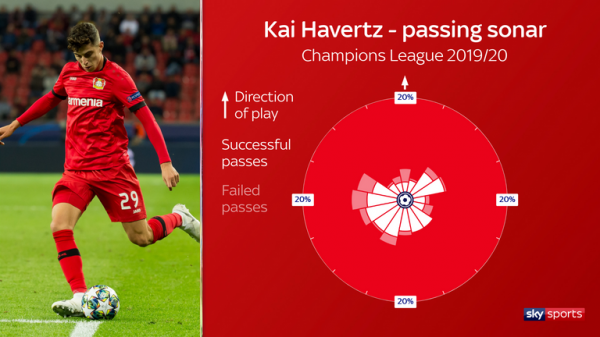
“Watch his assists and you can see it,” says Korkut. “What is fantastic about him is that he waits until the last second before making the decision. He waits and waits and you think the chance is gone but then – and only then – he plays the ball. He always makes the right decision.
“That is a very special quality for a player because he never plays the pass just to play the pass to the next player. Iniesta had that too. When he gave the ball to a team-mate, he was always putting him in an easier situation. Kai is the same. His passes open the game up for his team-mates.”
Finishing
His record in front of goal is one of the more remarkable aspects of his game, but that one took time to develop. His first 67 appearance for Leverkusen yielded eight goals. His last 87 brought 38. While some of his talents can appear innate, this particular skill is one that he has learned.
“There was a big step that he made in terms of scoring goals,” acknowledges Korkut. “It was something that I spoke to him about because that scoring ability was the only thing that he had to improve in my time. He lacked that killer shot, even the speed in his shot.
“A lot of players have talent but to finish the situations can be difficult for the young players. Many of them can dribble but lots of them miss the final pass or shot. In the past two years he has developed that part of his game fantastically. He has improved a lot and scored a lot of goals.”
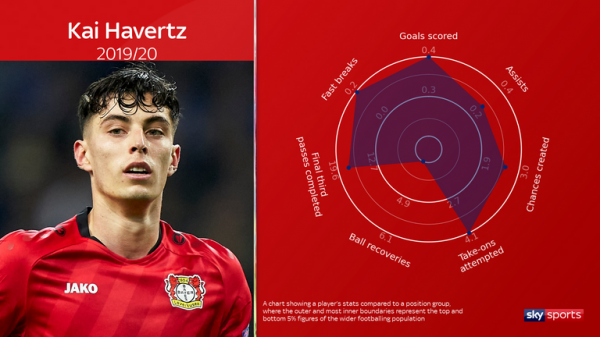
Movement
Finding space is an ability that is hard to define and as a result there is a tendency to underrate it, but it is an essential component of Havertz’s success. “It is something you can’t teach,” says Korkut.
“He moves fantastically between the lines. He knows exactly where to stand. He sees the spaces where he needs to be. When the space begins to close, he moves to the next space. So he not only controls the ball, he controls the space. That is why he is always in the right position.”
- Paper talk – latest headlines
- Football transfer rumours
Allied to his passing and finishing, it makes him very dangerous. “Kai is different to others because he can give the ball but he can also receive the ball. He has a very good deep run into the area.”
Korkut also knows Timo Werner well, having been a coach in Stuttgart’s academy when the other darling of German football was breaking through. He admires the forward too but sees this as a key difference between the two. “Timo is different because he needs players who can give him the ball,” adds Korkut. “He works with his running. But Kai is special.
“He is like the team’s brain.”
Mentality
For all of the technical and physical attributes that Havertz possesses, the trait that sets him apart, the one that Korkut keeps returning to, is his mentality. That is what convinced his coach that he could handle the pressure at 17. That is why there is no ceiling on his potential now.
“This is possibly the most special thing about him, his mental power. You will not see the difference in him whether he is playing against Ingolstadt or Real Madrid, whether he is playing to avoid relegation or win a championship. He will always plays the same and at a high level.
“Even at 17, he did not have ups and downs. It was not about the coach being brave, it was about the player. He gave me that feeling that he could play those big games and he could. He has this unbelievable mental strength. I do not know if it translates into English but he is like an ice man.
- Latest transfer news
- Live football on Sky
“When you watch him now, you cannot tell if he is under pressure. I don’t know what he is feeling inside but he does not show it and that is an important quality if you want to be one of the best.
“Playing for big clubs is different. It is about mental toughness. There are a lot of nice young players out there. But to play for the biggest clubs. To play for Bayern Munich, Manchester United or Chelsea, you need to have something more than just talent. This boy has that.
“It is not about being able to shoot fantastically well or because he can play the final pass, even though he can do those things. It is because of these mental qualities. That is the difference.”
What next?
Perhaps that maturity is why Korkut scoffs at the notion of further improvement in Havertz’s game. This is a world-class player. The next step will just give him the platform that his talents deserve.
“The most important thing now is for him to play for a bigger club than Leverkusen but he is already fantastically prepared,” says his old coach.
“He has played in the Champions League. He was the top player in the Bundesliga. He is ready to play for any team in the world. Improve? What can you improve? Sometimes it is best to leave players like they are.
“I don’t want to say he is the perfect player because I do not know if the perfect player exists, but he has all the tools to be a big player for the next three or four years. Very big. The boy is special.”
Sourse: skysports.com
